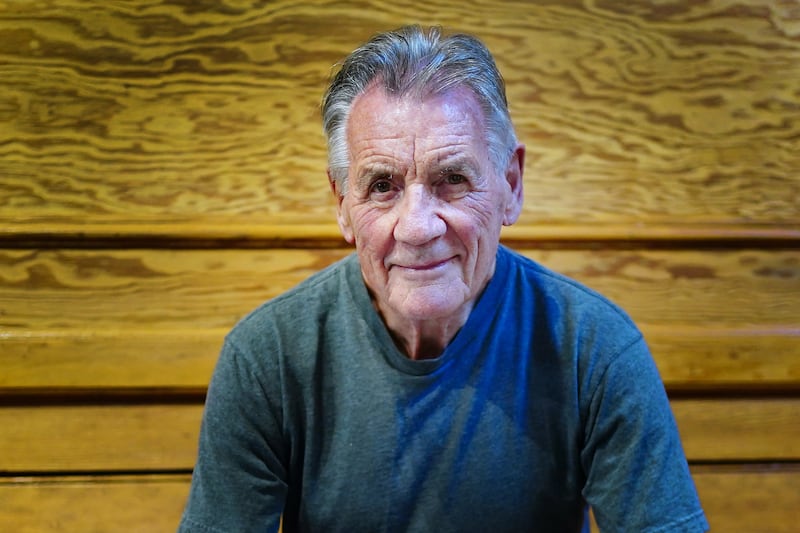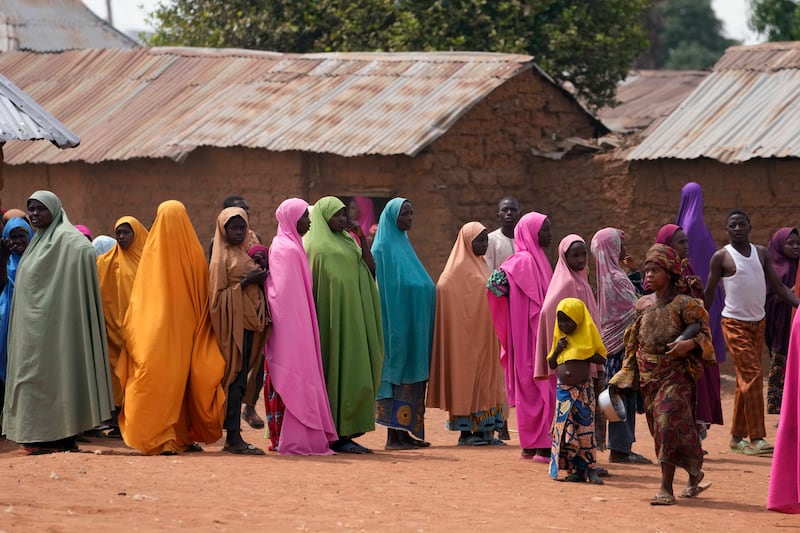If the Rolling Stones can perform on stage into their dotage, then I suppose there’s no reason why Michael Palin can’t keep touring the world.
The 80-year-old ascended to TV royalty after Around the World in 80 Days redefined TV travelogue in the 1980s and a series of similar programmes followed.
Lately it’s been one-off country visits rather than circumnavigating the globe, but his trips to North Korea and Iraq were worthwhile.
His latest adventure is to Africa’s most populous nation, Nigeria.
And by current projections, he told us, Nigeria will be the third most populous country in the world by 2050, after India and China.
To the envy of many developed countries, not least South Korea which fears its people are dying out such is the low reproduction rate, Nigeria has a birth rate of five children per woman.
Figures like that mean that Lagos (20 million souls) is projected to have a population of 88 million by the end of the century.

Of course, predictions often mean nothing, particularly when it comes to humans.
We are unique among living things in that when resources are plentiful, we have less offspring, not more. as happens in the animal kingdom.
South Korea, and other European and Asian nations, are finding out to their cost that success (and the wealth that accompanies it) often means a dwindling population.
Palin feels the full force of what density of people feels like when he begins his journey in Lagos, the old capital of the country.
“It’s like having 3,000 volts put through you,” he says with a rictus smile as he navigates his way through a sprawling market.
He’s not quite the traveller of old.
For one, his ‘Passepartout’ has grown exponentially and that means more fixers to ensure his security, guides to direct him around and people in the know to explain what’s going on.
Like us all, Palin is a better travel guide when he finds things out for himself.
But then age is merciless and it’s entirely reasonable that he has some more help about the place.
That’s not to say that he’s lost any of his sharpness and wit.
He noted with glee an official looking sign on an old colonial building in Lokoja, once the seat of British power in Nigeria, that ‘no urinating’ was allowed.
To be fair, he travelled extensively in the country.
His first destination after Lagos was to the slavery station called the ‘point of no return’.
It was a solemn visit as he took in the enormity of what had happened on a beautiful Atlantic beach as innocent captured people were transported in slave ships to the New World.
Afterwards, he flew to Kano in the north of the country, on the edge of the dangerous Sahel and an area of operation for Boko Haram.
Then it was into a jeep and 1,300 miles overland back across the country.
They went through modern roads, paid for by China, other almost impassible roads, and through dusty and dangerous towns and onto the capital since 1991; think of Craigavon with more scale and better weather and you get Abuja.

Palin touched on the corruption which plagues Nigeria and appears to hold it back from taking its place among the foremost nations in the world that its size deserves.
But mostly his visit is an encouraging one. He was struck by the positivity of the people and hopes that their striving nature means that Nigeria’s progress maps that of India and China to a better life for the millions of the poor and disposed.








